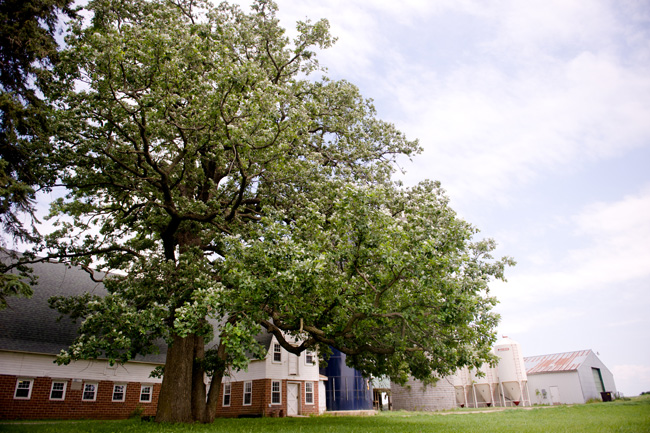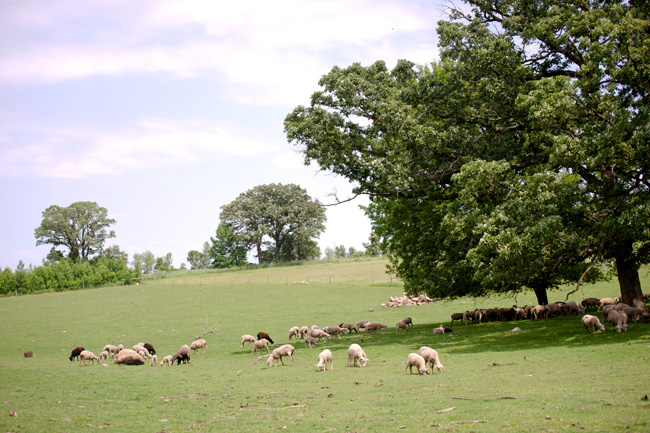
About the Farms in the Lens series: Much of what we write within these pages is focused on the restaurants of Minneapolis and St. Paul. But much of what we eat at those tables comes from farms around the state. With underwriting from Clancey’s Meats and Fish, we’ve set out to document a half dozen of these farms, focusing on the relationship between humans and animals. Check out our complete Farms in the Lens series, including: Wild Acres, Hidden Stream, Shepherd’s Way, Redhead Creamery, Twisted Suri Alpaca Ranch, and Paradox Farm.
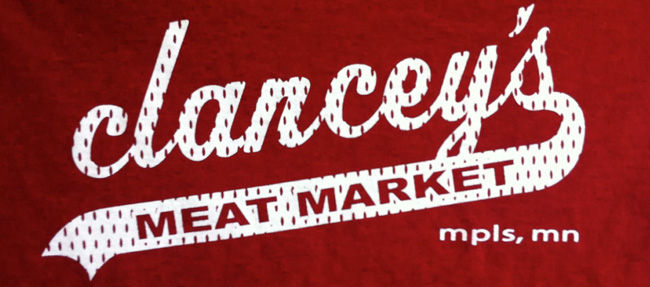
Shepherd’s Way Farms is a sheep dairy and cheesemaking operation located outside of Northfield, Minn. Jodi Ohlsen Read and Steven Read started Shepherd’s Way as a dairy in the ’90s after deciding to leave their more academically minded careers in the Twin Cities. We visited Shepherd’s Way in 2012 for a magazine story and have annotated some of our favorite photos for this series.
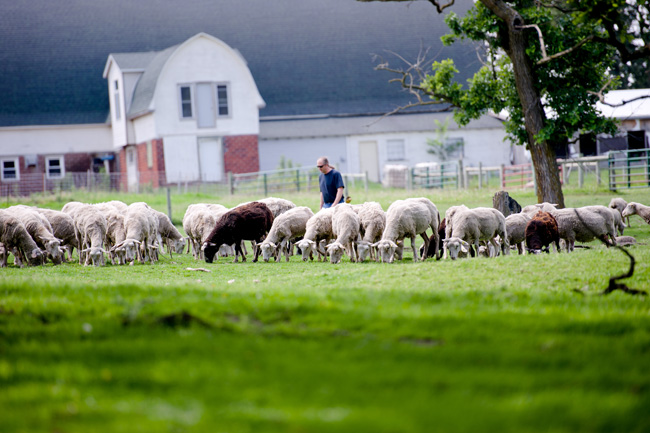
While they share many duties on the farm, Steven is the shepherd, while Jodi is the primary cheesemaker. Their four sons, in their teens and twenties, help on the farm and at farmers markets whenever they can.
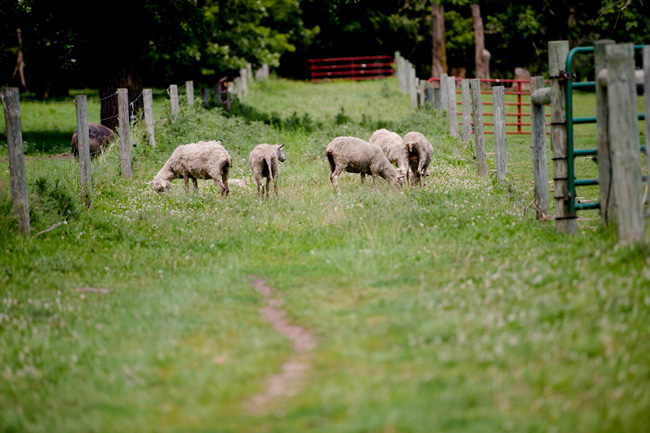
“Most sheep have a flocking instinct,” says Steven. “Friesian sheep have a family flocking instinct. If you drive by range sheep, they’ll be a mass — they all kind of move together. If you drive by Friesian sheep, they’ll be dispersed throughout the pasture. When they come into the [milking] parlor, you’ll see mother, daughter, sister coming into the parlor together.”
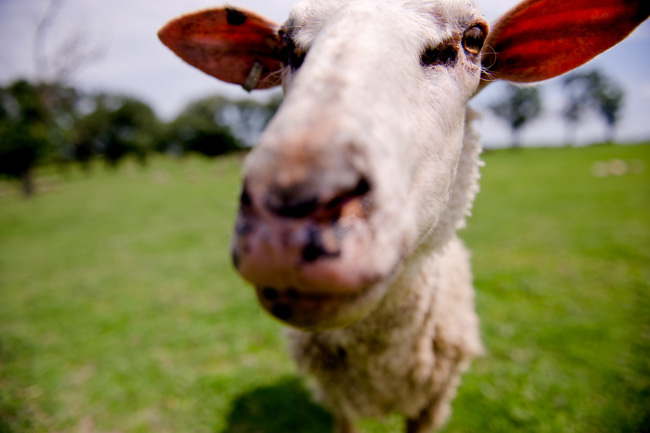
A curious sheep eyes our camera.
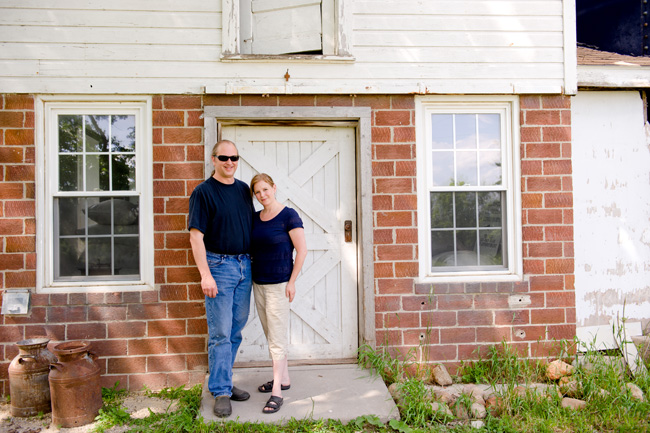
“I think we were both ready for something else — we were both living in cubicles and driving for a big part of each day, and that wasn’t how we wanted to spend the next part of our lives,” says Jodi. “I wanted to be able to be around our kids more. Steven and I met working together, and it was strange to be apart all of the time.”
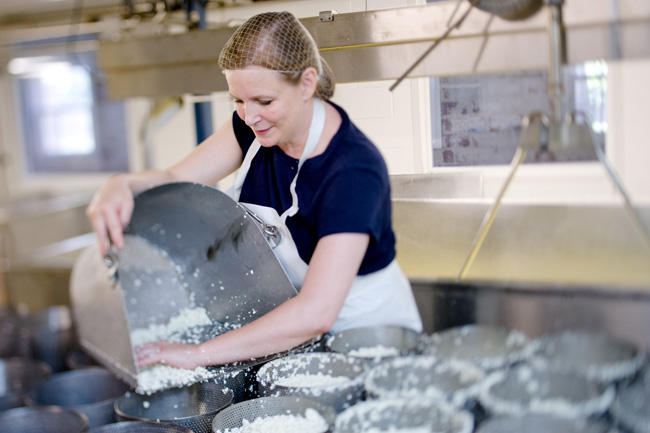
Jodi became a cheesemaker out of necessity when their major milk buyer stopped taking sheep milk. Her Big Woods Blue has won numerous American Cheese Society awards. Another specialty of the farm is traditional ricotta, made from the whey remaining at the end of a cheesemaking session.
“I did not expect to have it resonate with me the way it did,” says Jodi. “There’s something magical … you come in in the morning; you get to work; you start with the milk; you add the culture; you add the rennet. … That moment — when you put a small spatula in to check the break, and you get some resistance there, so that you know it’s done pretty much what it’s supposed to, and it’s right — that little moment is one of the most satisfying of the day.”
“What the sheep eat and how they live is reflected in the milk,” says Steven.
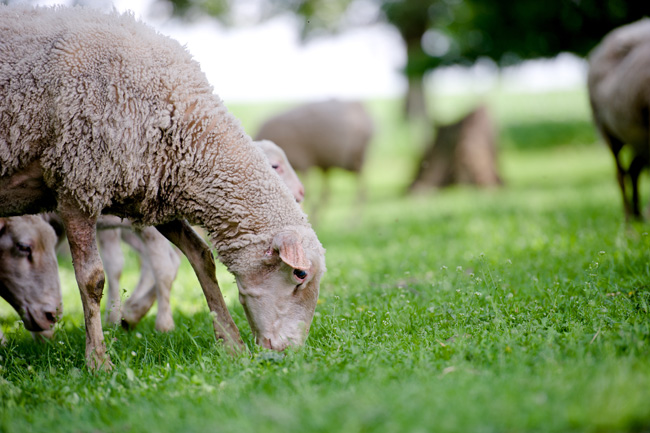
“All of the sheep, and this is probably true of all the Midwest dairy shepherds … are pasture-based,” says Steven. “When there is grass, they’re on it. We take sunshine, turn it into grass, turn it into milk, turn it into cheese, turn it into customers. “I love being a part of that cycle.”
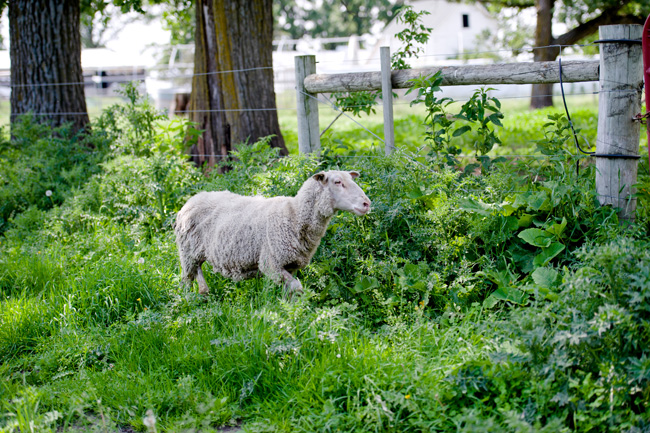
“People say, ‘What do you do with your old ones?’” says Steven. “Any old sheep we have, they’ve paid their dues. Even if they’re not producing in the milking parlor, they stay on the farm.”
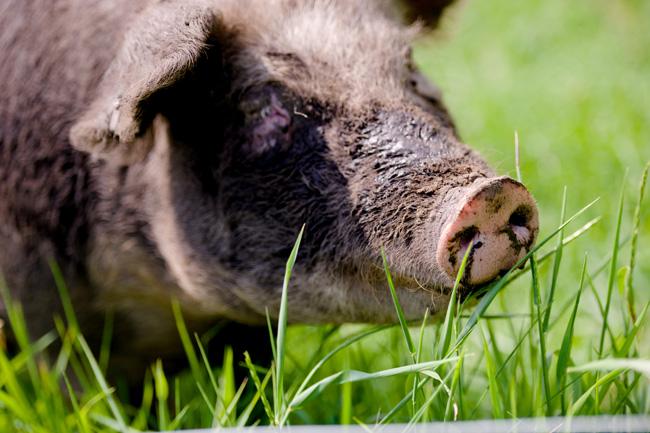
A pig enjoys grazing as well.
A devastating fire in 2005 killed more than 500 animals and destroyed the nursery barn. The Reads have since rebuilt the flock and the barn. “All events in your life, the tragic and the blissful — I would never say I’m glad we went through it, but out of it came a lot,” says Steven. “There was a tremendous outpouring of support from all over the country.”
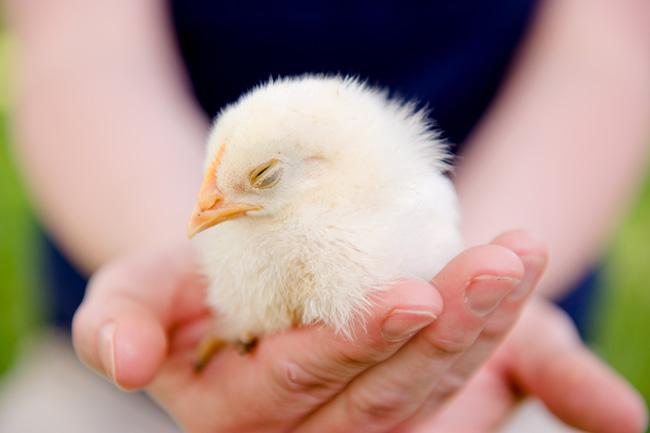
“I make the cheese as best I can, and then it leaves,” says Jodi. “It goes away. But I’ll go to a restaurant, and people will be eating my cheese … and I’m connected to that person over there who’s eating the very thing that I made. And that’s so bizarre. It’s tangible evidence of our connection.”
